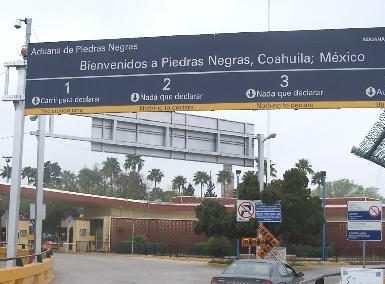Last week, Governor Doug Ducey joined a growing chorus of Arizona leaders to express his support for the Tomato Suspension Agreement. Earlier this year, Florida lawmakers appealed to Secretary of Commerce Wilbur Ross to pull out of the 23-year-old Tomato Suspension Agreement, a regulation enacted in 1996 that set different floors for prices of tomatoes during certain times of the year when prices could spike up. The reason for the agreement was to make sure imports of fresh tomatoes coming in from Mexico–and we get truckload after truckload coming in every day–were sold at a fair value here in the United States.
If the Commerce Department doesn’t re-up the agreement on May 7th, the ties we’ve had for 23 years will be broken, causing a major stir in prices and relationships with Mexican tomato producers. The decision to pull out has been one of contention for lawmakers on both sides of the aisle, especially here in Arizona where it could have major long-term negative effects. In March, U.S. representatives from our state as well as our two senators, Martha McSally (R) and Kyrsten Sinema (D), came together in a bipartisan voice of solidarity to oppose the decision to cut the agreement in a group letter to Sec. Ross.
Now Gov. Doug Ducey sent a letter of his own, imploring the cabinet member to stay the course just weeks after his counterpart in the Mexican state of Sonora, Gov. Claudia Pavlovich, urged Secretary Ross to keep the agreement intact.
“Border communities are essential to our nation’s trade with Mexico and efforts focused on promoting investment and job creation in these areas are vital… I ask that the Department give consideration to the impacts that terminating this Suspension Agreement can have on Arizona and American consumers,” Gov. Ducey said in the letter.
Tomatoes provide more than 33,000 jobs here in Arizona and a major economic push in the country. Sen. Marco Rubio (R-FL) is spearheading the effort to curb produce imports from Mexico in order to boost shares for local tomato producers in Florida. They believe Mexico has taken an unfair market share in the tomato trade compared to local producers. Cutting this agreement could hurt trade with Mexico, however, which is Arizona’s biggest trade partner.
“Arizona’s border communities, primarily Nogales, have served as a principal gateway for fresh produce from Mexico,” Ducey said. “The produce industry reports that in Nogales and Santa Cruz County alone, over 100 Arizona-based companies and more than 2,500 jobs are dependent on the flow of Mexican fresh produce, with tomatoes being the single largest commodity. The termination of the Suspension Agreement stands to severely impact the hundreds of companies and thousands of jobs that depend on the growing flow of fresh produce through Arizona’s border.”
















Add comment